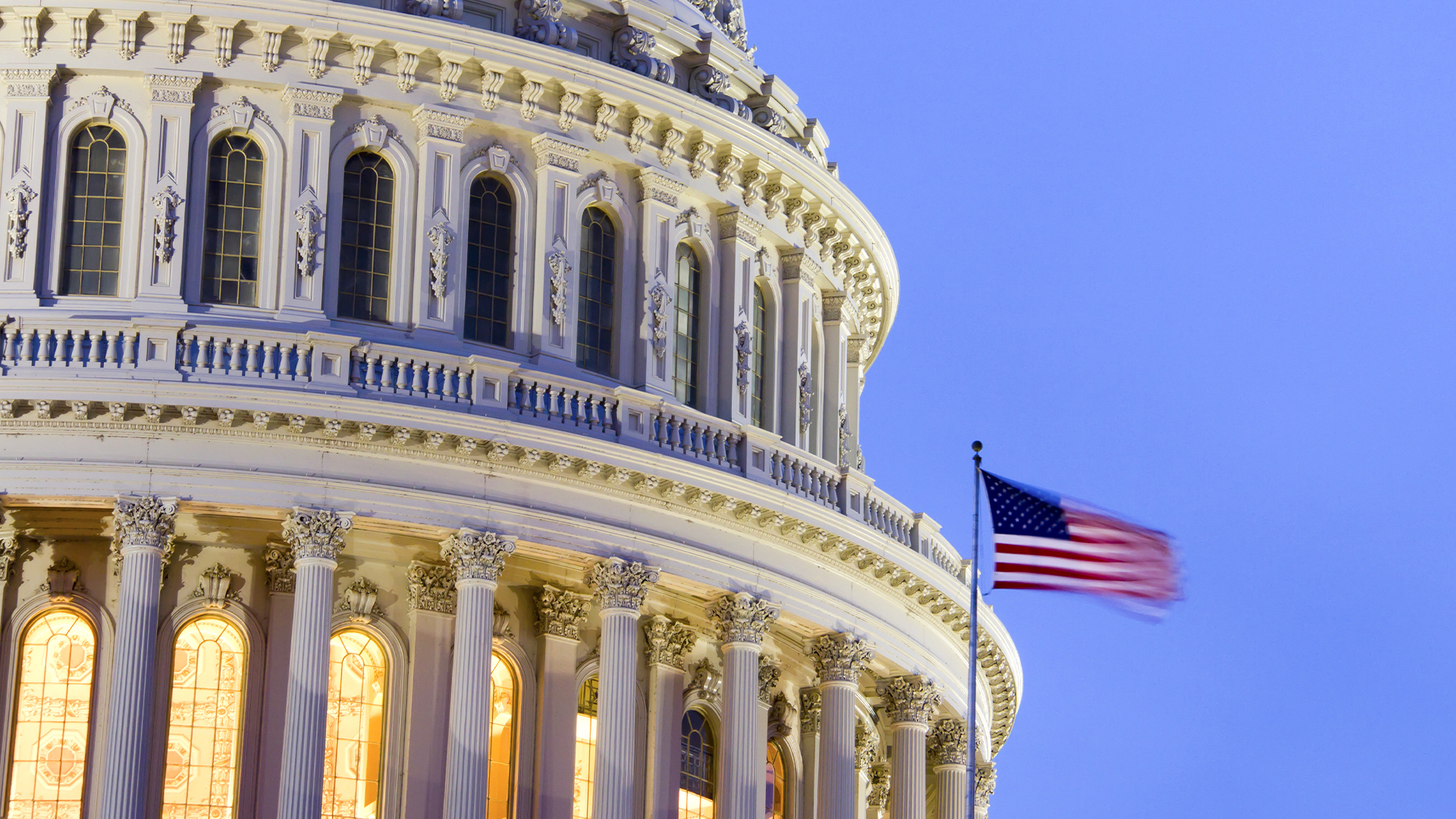The US sanctions space is very active and changes are made frequently. This publication has been updated to reflect the most recent changes and is current as of August 8, 2022.
On February 21, 2022, the US government began taking a series of actions in response to Russia's announcement that it would recognize as "independent" two regions of Ukraine. As of the date of this publication, these actions include:
- A new Executive Order issued by US President Joseph Biden on February 21, 2022 (EO 14065), which expands the comprehensive sanctions relating to Ukraine to now include the so-called Donetsk People's Republic (DNR) and Luhansk People's Republic (LNR) in addition to Crimea, resulting in severe restrictions on economic activity with these regions, including regulations to implement EO 14065.
- A joint decision between the United States, European Commission, France, Germany, Italy, the United Kingdom and Canada to remove several Russian banks from SWIFT, the high-security network supporting transactions and payments in the international financial system.
- Blocking sanctions on several entities and individuals, including several major Russian financial institutions and their subsidiaries; Russian President Vladimir Putin, and several prominent Russians and their family members; certain entities that manage Russia's key sovereign wealth funds and the CEO of one of those entities; the company building the Nord Stream 2 pipeline and its CEO; and several Belarusian individuals and entities across Belarus' defense and financial institution sectors, effectively restricting their ability to do business in the United States and curtailing their access to the US financial system.
- Correspondent and payable-through account and payment processing prohibitions on the largest Russian financial institution and its subsidiaries, restricting their ability to process payments through the US financial system.
- New prohibitions related to transactions involving Russia's central bank designed to immobilize any Russian central bank assets held in the United States or by US persons.
- New prohibitions related to new debt and equity of major Russian state-owned enterprises and large privately owned financial institutions.
- Expanded sovereign debt prohibitions to restrict US individuals and financial institutions from participation in secondary markets for ruble- or non-ruble-denominated bonds issued by certain Russian sovereign entities.
- A determination that any institution in the financial services sector of Russia can be a target for further sanctions.
- New and expanded US export controls primarily targeting Russia's defense, aerospace and maritime sectors, including restrictions on exports of sensitive US items and non-US items produced using US equipment, software, and blueprints—such as semiconductors, telecommunication, encryption security, lasers, sensors, navigation avionics and maritime technologies—and stringent controls on several Russian military end users that are now subject to restrictions on exports of all US items.
- Two new executive orders (EO 14066 and EO 14068) further restricting connections between the Russian and US economies, including prohibitions on a wide range of Russian-origin imports, Russian-bound exports, new investments in the Russian economy and financing activities.
- A determination that any person in the aerospace, electronics, and marine sectors of the Russian economy can be a target for blocking sanctions.
- Multilateral and multi-departmental task forces targeting individuals and corporations seeking to evade or undermine US sanctions.
- A new executive order (EO 14071) prohibiting any new investment in Russia and the export, reexport, sale or supply, of any designated services to persons in Russia and a corresponding determination that the prohibition on exports of services applies to accounting, trust and corporate formation, and management consulting services beginning 12:01 a.m. EDT on June 7, 2022.
- A determination that any person in the accounting, trust and corporate formation services and management consulting sectors of the Russian economy can be a target for sanctions.
As detailed below, these actions, in addition to those taken by the United Kingdom, the European Union and other US allies and partners, have potentially significant implications for US and non-US companies that have business activities touching Russia and Ukraine. Given the rapidly evolving situation in Ukraine, companies should be prepared for likely forthcoming additional sanctions and take steps to mitigate the associated risks.
Please note, this document is not intended to be an exhaustive summary of all the nuances of the new sanctions and export restrictions, nor to provide advice on specific transactions or activities, and as the Ukraine situation continues to develop, the information provided herein may be subject to change.
EO 14065
EO 14065 is similar in style to EO 13685 of December 19, 2014, issued by President Barack Obama in response to Russia's annexation of Crimea. It prohibits transactions by US persons or otherwise within the United States involving the following activities:
- New investment in the so-called DNR or LNR regions of Ukraine by a US person, wherever located;
- The importation into the United States, directly or indirectly, of any goods, services or technology from the so-called DNR or LNR regions of Ukraine;
- The exportation, reexportation, sale, or supply, directly or indirectly, from the United States, or by a US person, wherever located, of any goods, services, or technology to the so-called DNR or LNR regions of Ukraine; and
- Any approval, financing, facilitation or guarantee by a US person, wherever located, of a transaction by a non-US person where the transaction by that non-US person would be covered by these prohibitions if performed by a US person or within the United States.
EO 14065 also blocks all property and interests in property that are in the United States or that come within US person possession or control of any person determined by the Secretary of the Treasury in consultation with the Secretary of State:
- To operate or have operated since the date of the order in the so-called DNR or LNR regions of Ukraine;
- To be or have been since February 21, 2022, a leader, official, senior executive officer or member of the board of directors of an entity operating in the so-called DNR or LNR regions of Ukraine;
- To be owned or controlled by, or to have acted or purported to act for or on behalf of, directly or indirectly, any person whose property and interests in property are blocked pursuant to this order; or,
- To have materially assisted, sponsored or provided financial, material, or technological support for, or goods or services to or in support of, any person whose property and interests in property are blocked pursuant to this order.
The US Department of the Treasury's Office of Foreign Assets Control (OFAC) concurrently issued several General Licenses (GLs) to ensure that activity that would otherwise be prohibited by the sanctions can continue in these regions. The GLs authorize:
- Agricultural commodities, medicine, medical devices, replacement parts and components, software updates, and COVID-19-related items and supplies (GL 18);
- Telecommunications and mail transactions (GL 19);
- Certain official business of specified international humanitarian organizations (GL 20);
- Certain non-commercial personal remittances and related operation of financial accounts (GL 21);
- Exports of certain services and software incident to internet-based communications (GL 22);
- Certain transactions in support of nongovernmental organizations' activities, including humanitarian support, democracy building, education, non-commercial development projects and environmental and natural resource protection in the DNR and LNR regions (GL 23);
- Civil maritime service transactions with residents in the DNR and LNR regions (GL 24); and
- Journalistic activities and establishment of news bureaus in the DNR and LNR regions of Ukraine (GL 25).
New export and import prohibitions pursuant to EO 14066 and EO 14068
Within the span of one week, President Biden signed two new executive orders placing prohibitions on a range of Russian-origin imports and Russian-bound exports, as well as new investments and financing activities benefitting the Russian economy.
On March 8, 2022, President Biden signed EO 14066 to prohibit imports of Russian oil, liquefied natural gas, coal and related products into the United States and prohibiting US persons from engaging in any new investment in the energy sector of the Russian Federation. These restrictions specifically target Russian-origin products, and do not affect those simply passing through the Russian Federation.
Building upon EO 14066, EO 14068 sets forth a wider set of restrictions, including prohibitions on:
- Imports of Russian fish, seafood, alcoholic beverages, non-industrial diamonds and other Russian origin products as designated by the Secretary of the Treasury;
- The exportation, reexportation, sale, or supply, directly or indirectly, from the United States or by a US person, wherever located, of luxury goods to any person located in the Russian Federation;
- New investment, by a US person, wherever located, in any sector of the Russian economy, as may be determined by the Secretary of the Treasury;
- The exportation, reexportation, sale, or supply, directly or indirectly, from the United States or a US person, wherever located, of US dollar-denominated banknotes to the Government of the Russian Federation or any person located in the Russian Federation; and
- Any approval, financing, facilitation or guarantee by a US person, wherever located, of a transaction by a foreign person where such transaction would be prohibited if performed by a US person or within the United States.
This EO establishes the legal authority for future investment restrictions in any sector of the Russian economy, as may be determined by the Secretary of the Treasury, in consultation with the Secretary of State, by a US person. EO 14068 is just the first of the United States' steps to implement coordinated measures against Russia by the United States, EU and the G7. These measures are intended "to hold Putin accountable for his continued assault on Ukraine and further isolate Russia from the global financial system."
OFAC concurrently issued GLs authorizing:
- Transactions ordinarily incident and necessary to the importation into the United States of fish, seafood and preparations thereof of Russian-origin pursuant to written contracts or written agreements entered into prior to March 11, 2022 through 12:01 a.m. EDT, June 23, 2022 (GL 17A, now expired);
- Transactions ordinarily incident and necessary to the transfer of US dollar-denominated banknote noncommercial, personal remittances from: (i) the United States or a US person, wherever located, to an individual located in the Russian Federation; or (ii) a US person who is an individual located in the Russian Federation (GL 18); and
- Transactions by US persons located in the Russian Federation for their personal maintenance within the Russian Federation, including payment of housing expenses, acquisition of goods or services for personal use, payment of taxes or fees and purchase or receipt of permits, licenses or public utility services (GL 19).
On March 11, 2022, President Biden also announced that the US also would:
- Revoke Russia's Most-Favored Nation Status, working closely with Congress to deny Russia the benefits of its WTO membership and ensure that Russian imports do not receive most favored nation (MFN) treatment in our economy, together with similar actions by the G7;
- Work with G7 Leaders to deny borrowing privileges at multilateral financial institutions;
- Impose full blocking sanctions on additional Russian elites and their family members, including executives of sanctioned banks, and Duma members who sponsored legislation to recognize the so-called "Donetsk People's Republic" and "Luhansk People's Republic," cutting them off from the US financial system, freezing any assets they hold in the United States and blocking their travel to the United States; and
- Issue new Treasury Department guidance to thwart sanctions evasion, including through virtual currency, underscoring that Treasury's actions against Russia require all US persons to comply with sanctions regulations regardless of whether a transaction is denominated in traditional fiat currency or virtual currency.
On April 11, 2022, President Biden signed two pieces of legislation. First, H.R. 6968, the "Ending Importation of Russian Oil Act," which statutorily prohibits the importation of energy products from Russia. Second, H.R. 1708, the "Suspending Normal Trade Relations with Russia and Belarus Act," a bipartisan effort to revoke MFN treatment from Russia and Belarus under the US Harmonized Tariff Schedule. With this revocation of status, the ad valorem tax on Russian and Belarusian imports rises from approximately 4 percent to approximately 30 percent. Additionally, President Biden now has the authority to impose tariffs higher than this non-MFN rate until January 1, 2024. President Biden also has the authority to temporarily or permanently restore MFN treatment if aggression in Ukraine ceases and other conditions are met. Additionally, the US Trade Representative is instructed to seek Russia's suspension from the WTO.
Blocking sanctions pursuant to EO 14024 and EO 14039
OFAC has designated, pursuant to EO 14024 (issued on April 15, 2021), several Russian entities and individuals in an effort to curb their access to the US financial system and markets, including the following:
- On February 22, 2022, two major Russian state-owned financial institutions (Vnesheconombank and Promsvyazbank), along with 42 of their subsidiaries across a wide range of businesses; five vessels owned by one of the designated subsidiaries; and five Russian "elites and their family members" determined by the US to be directly benefitting from relationships with the Kremlin and President Putin;
- On February 24, 2022, four major Russian state-owned financial institutions (VTB Bank, Otkritie, Sovcombank, and Novikombank), one of which (VTB) OFAC described as "one of the largest financial institutions Treasury has ever blocked," along with 54 of their subsidiaries, as well as seven Russian "elites and their family members" determined by the US to be benefitting from relationships with the Kremlin and funding President Putin's invasion of Ukraine;
- On February 24, 2022, 24 Belarusian individuals and entities across Belarus' defense and financial sectors;
- On February 25, 2022, President Putin and Russian Minister of Foreign Affairs Sergei Lavrov, as well as 11 additional members of Russia's Security Council determined by the US to be leaders, officials, senior executive officers, or members of the board of directors of the Russian Government;
- On March 11, 2022, Yuri Kovalchuk, several executives of sanctioned Russian banks and Duma members who sponsored legislation to recognize the so-called "Donetsk People's Republic" and "Luhansk People's Republic";
- On March 24, 2022, Sberbank CEO Herman Gref, dozens of Russian defense companies and 328 members of the Russian State Duma;
- On April 6, 2022, former President and Prime Minister Dmitry Medvedev, Prime Minister Mikhail Mishustin, President Putin's daughters, Foreign Minister Lavrov's wife and daughter, Sberbank and 42 of its subsidiaries, Alfa-Bank and six of its subsidiaries as well as five of its vessels and the remaining members of Russia's Security Council;
- On April 7, 2022, Russian state-owned diamond mining company Alrosa as well as Russian state-owned warship manufacturer United Shipbuilding Corporation;
- On April 20, 2022, Transkapitalbank, 40 individuals and entities linked to Konstantin Malofeyev and several companies operating in Russia's virtual currency mining industry;
- On May 8, 2022, board members of Sberbank and Gazprombank, JSC Moscow Industrial Bank and 10 of its subsidiaries, LLC Promtekhnologiya and three of Russia's state-controlled television stations that generate revenue for the state;
- On June 2, 2022, five Russian oligarchs, elites and family members and their associated entities;
- On June 15, 2022, two key supporters of the ethnically-motivated violent extremist group, Russian Imperial Movement;
- On June 28, 2022, 29 individuals and 70 entities, many of which are in the Russian defense industrial base, including State Corporation Rostec;
- On July 29, 2022, two individuals and four entities believed to be supporting the Kremlin's global malign influence operations and election interference activities; and
- On August 2, 2022, several Russian elites for their relationships with Putin, the Russian government or for operating in the Russian financial sector as well as Russian state-owned JSC Promising Industrial and Infrastructure Technologies for facilitating sanctions evasion.
In addition, on February 23, 2022, OFAC designated the company involved in building the Nord Stream 2 pipeline and its CEO, pursuant to EO 14039 of August 20, 2021, implementing the Protecting Europe's Energy Security Act (PEESA) targeting Russian energy export pipelines.
On March 31, 2022, US Secretary of the Treasury Janet Yellen released a determination that blocking sanctions under EO 14024 may be applied to persons in the aerospace, electronics and marine sectors of the Russian Federation economy.
The above-mentioned entities and individuals have been added to OFAC's Specially Designated Nationals and Blocked Persons (SDN) List. As a result of these blocking actions, all property and interests in property of the designated persons that are in the United States or in the possession or control of US persons are blocked and must be reported to OFAC. In addition, any entities that are owned, directly or indirectly, individually or in the aggregate, 50 percent or more by one or more blocked persons are also blocked. Unless authorized or otherwise exempt, all transactions by US persons or within (or transiting) the United States that involve any property or interests in property of blocked persons are generally prohibited. The prohibitions include the making of any contribution or provision of funds, goods, or services by, to, or for the benefit of any blocked person, or the receipt of any contribution or provision of funds, goods, or services from any such person.
Correspondent and payable-through account sanctions pursuant to EO 14024
On February 24, 2022, OFAC imposed correspondent and payable-through account sanctions on Sberbank, which it characterized as "the largest financial institution in Russia," along with 25 of its non-US financial institution subsidiaries. OFAC is requiring all US financial institutions to close, within 30 days, any correspondent or payable-through accounts of this financial institution and to reject any future transactions involving that financial institution or its non-US financial institution subsidiaries. As a result of this action, payments that the targeted financial institution attempts to process in US dollars for its clients will be disrupted and rejected once the payment hits a US financial institution.
To implement these sanctions, OFAC issued Directive 2 under EO 14024 (the Russia-related CAPTA Directive). This directive prohibits US financial institutions from:
- Opening or maintaining of a correspondent account or payable-through account for or on behalf of any entity determined to be subject to the prohibitions of the Russia-related CAPTA Directive, or their property or interests in property; and
- Processing of transactions involving any such entities determined to be subject to the Russia-related CAPTA Directive, or their property or interests in property.
US financial institutions are required to reject such transactions unless exempt or authorized by OFAC. OFAC FAQ 97 states that the prohibitions of the Russia-related CAPTA Directive apply with respect to any currency. The entities determined to be subject to the Russia-related CAPTA Directive have been added to OFAC's List of Foreign Financial Institutions Subject to Correspondent Account or Payable-Through Account Sanctions (CAPTA List), a reference tool that provides notice of OFAC actions with respect to non-US financial institutions for which the opening or maintaining of a correspondent account or a payable-through account in the United States is prohibited or subject to one or more strict conditions. All non-US financial institutions that are owned 50 percent or more, directly or indirectly, by the targeted Russian financial institution are covered by the prohibitions of the Russia-related CAPTA Directive, even if not identified on OFAC's CAPTA List.
The prohibitions of the Russia-related CAPTA Directive take effect beginning at 12:01 a.m. EDT on March 26, 2022. All other activities with, or involving property or interests in property of, non-US financial institutions determined to be subject to the prohibitions of the CAPTA Directive are permitted, unless otherwise prohibited.
New prohibitions relating to transactions with Russian Central Bank
On February 28, 2022, OFAC issued new Directive 4 under EO 14024, pursuant to which US persons are prohibited from engaging in transactions with the Central Bank of the Russian Federation, the National Wealth Fund of the Russian Federation or the Ministry of Finance of the Russian Federation. Directive 4 prohibits any transaction by US persons involving these three entities, including any transfer of assets to such entities or any foreign exchange transaction for or on behalf of such entities. All other activities with these entities, or involving their property or interests in property are permitted, provided they are not otherwise prohibited by law, EO 14024, or other OFAC sanctions programs. Contemporaneously with the issuance of the directive, OFAC issued a general license authorizing certain energy-related transactions with the Central Bank of the Russian Federation (GL 8C).
New debt and equity prohibitions against major state-owned and private entities
On February 24, 2022, OFAC expanded Russia-related debt and equity restrictions to cover additional key aspects of the Russian economy. To implement this action, OFAC issued Directive 3 under EO 14024 (the Russia-related Entities Directive) to prohibit transactions and dealings by US persons or within the United States in new debt of longer than 14 days maturity and new equity of Russian state-owned enterprises, entities that operate in the Russian financial services sector and other entities determined to be subject to the prohibitions of the directive. These 13 major firms, which are listed in an annex to the directive, include six of Russia's largest financial institutions, such as Gazprombank, Sberbank, Promsvyazbank, Russian Agricultural Bank, Sovcomflot and Alfa-Bank. These entities are now significantly restricted from raising funds through the US market.
More specifically, Directive 3 prohibits the following activities by US persons or within the United States, unless licensed or otherwise authorized:
- For new debt or new equity of entities listed in Annex 1, or their property or interests in property, all transactions in, provision of financing for, and other dealings in new debt of longer than 14 days maturity or new equity where such new debt or new equity is issued on or after 12:01 a.m. EDT on March 26, 2022; and
- For new debt or new equity of entities otherwise determined to be subject to the prohibitions of this Directive, or their property or interests in property, all transactions in, provision of financing for, and other dealings in new debt of longer than 14 days maturity or new equity where such new debt or new equity is issued on or after 12:01 a.m. EDT on the date that is 30 days after the date of such determination.
The term "debt" includes bonds, loans, extensions of credit, loan guarantees, letters of credit, drafts, banker's acceptances, discount notes or bills or commercial paper. The term "equity" includes stocks, share issuances, depositary receipts or any other evidence of title or ownership. These prohibitions apply to all new debt with a maturity of greater than 14 days and new equity irrespective of currency denomination.
Directive 3 does not prohibit US persons from engaging in dealings relating to debt or equity issued before the relevant sanctions effective date by subject entities "so long as the terms of such debt (including the repayment period, the interest rate, and the amount) were contractually agreed to before the relevant sanctions effective date described in the Russia-related Entities Directive and are not modified on or after the relevant sanctions effective date."
The prohibitions apply to entities owned 50 percent or more by one or more of the sanctioned persons. All other activities with entities determined to be subject to the prohibitions of this directive, or involving their property or interests in property, are permitted, provided that such activities are not otherwise prohibited by law, EO 14024 or any other sanctions program implemented by OFAC.
A listing of entities determined to be subject to the prohibitions of this directive, including the entities listed in the annex to the directive, can be found on OFAC's Non-SDN Menu-Based Sanctions (NS-MBS) List. Some entities determined to be subject to the prohibitions of the Russia-related Entities Directive also may be subject to additional prohibitions under other sanctions authorities, such as additional directives under EO 14024 or EO 13662. OFAC reminds that each directive operates independently of the others; for example, if a transaction involves a person subject to two separate directives, a US person engaging in that transaction must comply with both directives.
Expanded sovereign debt restrictions pursuant to EO 14024 and newly issued Directive 1A
On February 22, 2022, the US expanded prohibitions on Russian sovereign debt designed to "den[y] Russia access to key US markets and investors." More specifically, pursuant to EO 14024, OFAC issued Directive 1A (the Russia-related Sovereign Debt Directive), amending and superseding Directive 1. Directive 1 imposed prohibitions on US persons' participation in the primary market for ruble or non-ruble denominated bonds issued by, or the lending of ruble or non-ruble denominated funds to, certain Russian sovereign entities. Directive 1A extends those prohibitions to also cover, as of March 1, 2022, US persons' participation in the secondary market for ruble or non-ruble denominated bonds issued by these entities after March 1, 2022. These entities have now been added to OFAC's NS-MBS List.
OFAC's 50 Percent Rule does not apply to Directive 1A. Under FAQ # 891, the prohibitions of the Russia-related Sovereign Debt Directive apply only to bonds issued by, or loans made to, the enumerated Russian sovereign entities, and do not apply to the property or interests in property of those entities.
Financial sector determination pursuant to EO 14024
On February 22, 2022, the Secretary of the Treasury, in consultation with the Secretary of State, determined that section 1(a)(i) of EO 14024, which authorizes the imposition of sanctions on persons determined to operate in certain Russian sectors, applies to the financial services sector of the Russian economy. When EO 14024 was issued on April 15, 2021, the technology sector and defense and related materiel sector of the Russian economy were identified. As OFAC explained, "A sector determination pursuant to EO 14024 exposes persons who operate or have operated in an identified sector to sanctions risk; however, a sector determination does not automatically impose sanctions on all persons who operate or have operated in the sector." Only persons who are determined, pursuant to EO 14024, to operate or have operated in the identified sectors are subject to sanctions.
Persons sanctioned pursuant to EO 14024 for operating or having operated in an identified sector are added to one or more OFAC sanctions lists based on the type of sanction, including the SDN List, the CAPTA List and the NS-MBS List.
Additional general licenses
As noted above, OFAC has issued certain general licenses (GLs) authorizing otherwise prohibited conduct in an effort to minimize unintended consequences. In addition to those mentioned above, with respect to conduct otherwise prohibited by EO 14024, OFAC has issued GLs authorizing:
- Certain transactions related to the servicing of certain bonds issued before March 1, 2022 (GL 2);
- Transactions related to exports or reexports of agricultural commodities, medicine, medical devices, replacement parts and components or software updates, the COVID-19 pandemic (GL 6B);
- Overflight payments, emergency landings, and air ambulance services (GL 7A);
- Transactions involving certain enumerated entities (and entities in which they own, directly or indirectly, individually or in the aggregate, a 50 percent or greater interest) that are "related to energy" through 12:01 a.m. EDT, December 5, 2022 (GL 8C);
- Transactions ordinarily incident and necessary for the day-to-day operations of US persons, or entities owned or controlled, directly or indirectly, by a US person, in Russia to pay taxes, fees or import duties, and purchase or receive permits, licenses, registrations, or certifications, to the extent such transactions are prohibited by Directive 4 through September 30, 2022 (GL 13A);
- Transactions where a Directive 4 entity's sole function in the transaction is to act as an operator of a clearing and settlement system, provided that there is no transfer of assets to or from any Directive 4 entity, unless separately authorized; no Directive 4 entity is either a counterparty or a beneficiary to the transaction, unless separately authorized; and the transaction must not involve a debit to an account in a US financial institution of the Directive 4 entity (GL 14);
- Transactions involving any entity owned 50 percent or more, directly or indirectly, by Alisher Burhanovich Usmanov that is not listed on OFAC's SDN list and unblocking all property and interests in property of the blocked Usmanov entities and authorizing debits to accounts on the books of a US financial institution of the blocked Usmanov entities (GL 15);
- Transactions by US persons ordinarily incident and necessary to the official business of third-country diplomatic or consular missions located in Russia (GL 20);
- Transactions ordinarily incident and necessary to the receipt or transmission of telecommunications involving Russia, as well as the export or reexport, sale, or supply, directly or indirectly, from the United States or by US persons to Russia of services, software, hardware or technology incident to the exchange of communications over the internet, such as instant messaging, videoconferencing, chat and email, social networking, sharing of photos, movies, and documents, web browsing, blogging, web hosting and domain name registration services (GL 25C);
- Certain transactions in support of nongovernmental organizations' activities, provided that the only involvement of blocked persons is the processing of funds by financial institutions blocked pursuant to EO 14024 (GL 27);
- Transactions involving Transkapitalbank or any entity in which it owns, directly or indirectly, a 50 percent or greater interest, that are ultimately destined for or originating from Afghanistan, through 12:01 a.m. EDT, October 20, 2022 (GL 28);
- Transactions involving SEFE Securing Energy for Europe GmbH (formerly known as Gazprom Germania GmbH), or any entity in which SEFE Securing Energy for Europe GmbH owns, directly or indirectly, a 50 percent or greater interest, that are prohibited by Directive 3 under EO 14024, through 12:01 a.m. EDT, December 16, 2022 (GL 30A);
- Certain transactions related to patents, trademarks and copyrights (GL 31);
- Transactions ordinarily incident and necessary to the exportation, reexportation, sale or supply, directly or indirectly, of credit rating or auditing services to any person in Russia through 12:01 a.m. EDT, August 20, 2022 (GL 35);
- Wind down transactions involving Severstal or any entity in which it owns, directly or indirectly, a 50 percent or greater interest, through 12:01 a.m. EDT, August 21, 2022 (GL 36);
- Transactions ordinarily incident and necessary to the processing of pension payments to US persons (GL 38);
- Wind down transactions involving Rostec or any entity blocked not earlier than June 28, 2022 in which Rostec owns, directly or indirectly, a 50 percent or greater interest, through 12:01 a.m. EDT, August 11, 2022, provided that any payment to a blocked person must be made into a blocked account (GL 39);
- Transactions ordinarily incident and necessary to the provision, exportation, or reexportation of goods, technology or services to ensure the safety of civil aviation involving one or more certain blocked entities, provided that the aircraft is registered in a jurisdiction solely outside of Russia and the goods, technology, or services provided, exported or reexported are for use on aircraft operated solely for civil aviation purposes (GL 40B);
- Transactions ordinarily incident and necessary to the manufacture, sale, and maintenance, including the provision and receipt of warranty and maintenance services, of agricultural equipment, components and spare parts produced by Nefaz Publicly Traded Company ("Nefaz") or PJSC Tutaev Motor Plant ("Tutaev Motor Plant"), or any entity in which Nefaz or Tutaev Motor Plant owns, directly or indirectly, individually or in the aggregate, a 50 percent or greater interest, through 12:01 a.m. EST, December 22, 2022, provided that any payment to a blocked person must be made into a blocked account (GL 41);
- Transactions involving the Federal Security Service e (a.k.a. Federalnaya Sluzhba Bezopasnosti) (a.k.a. FSB) provided that such transactions and activities are ordinarily incident and necessary to certain transactions and compliance with certain law enforcement, administrative actions, investigations involving the FSB and/or rules and regulations administered by FSB (GL 42);
- Transactions ordinarily incident and necessary to divestment or transfer of debt or equity of Severstal or Nord Gold PLC, or any entity in which Severstal or Nord Gold owns, directly or indirectly, individually or in the aggregate, a 50 percent or greater interest, purchased prior to June 2, 2022 through 12:01 a.m. EDT, August 31, 2022, provided that any divestment or transfer, or facilitation of divestment or transfer, of covered debt or equity must be to a non-US person (GL 43A, (a));
- Wind down transactions of derivative contracts entered into prior to June 2, 2022 that (i) include Severstal, Nord Gold or an entity in which either company owns, directly or indirectly, individually or in the aggregate, a 50 percent or greater interest, as a counterparty or (ii) are linked to covered debt or equity, through 12:01 a.m. EDT, August 31 2022, provided that any payments to a blocked person are made to a blocked account (GL 43A, (b));
- Transactions ordinarily incident and necessary to the exportation, reexportation, sale or supply, directly or indirectly, from the United States, or by a United States person, wherever locates, of tax preparation or filing services to any individual who is a US person located in the Russian Federation (GL 44);
- Transactions ordinarily incident and necessary to the wind down of financial contracts or other agreements that were entered into on or before June 6, 2022 and involve, or are linked to, debt or equity issued by an entity in Russia are authorized through 12:01 a.m. EDT, October 20, 2022 (GL 45);
- Transactions related to the establishment, administration, participation in and execution of an auction process as announced by the EMEA Credit Derivatives Determination Committee to settle credit derivative transactions with a reference entity of "the Russian Federation" (GL 46, (a));
- Purchase or receipt of debt obligations of the Russian Federation by US persons is authorized for the period beginning two business days prior to the announced date of the auction and ending eight business days after the conclusion of the auction (GL 46, (b));
- Transactions ordinarily incident and necessary to facilitating, clearing and setting transactions the two types of auction-related transactions described above (GL 46, (c));
- Wind down transactions involving certain blocked technology, steel and transportation entities and entities in which they own, directly or indirectly, individually or in the aggregate, a 50 percent or greater interest, through 12:01 a.m. EDT, September 1, 2022 (GL 47A);
- Transactions ordinarily incident and necessary to the divestment or transfer, or facilitation of the divestment or transfer, of debt or equity of Publichnoe Aktsionernoe Obschestvo Magnitogorskiy Metallurgicheskiy Kombinat and JSC Government Transport Company or any entities in which either company owns, directly or indirectly, individually or in the aggregate, a 50 percent or greater interest, purchased prior to August 2, 2022 to a non-US person through 12:01 a.m. EDT, October 3, 2022 (GL 48A); and
- Transactions ordinarily incident and necessary to the wind down of any transaction involving MMK Metalurji Sanayi Ticaret Ve Liman Isletmeciligi Anonim Sirketi (MMK Metalurji), or any entity in which MMK Metalurji owns, directly or indirectly, a 50 percent or greater interest, through 12:01 a.m. EST, January 31, 2023, provided that any payment to a blocked person must be made into a blocked account (GL 49).
New and expanded Russia-related export restrictions
In response to Russia's actions in Ukraine, the US Department of Commerce's Bureau of Industry and Security (BIS) issued and modified several Russia-related export restrictions that are now codified in the Code of Federal Regulations. On February 24, 2022, the BIS issued new Russia license requirements and licensing policies. Commerce later imposed the same sanctions on Belarus and further restricted the availability of certain licenses. BIS has since amended and expanded the existing sanctions to target certain entities, exclude additional partner countries, target the Russian oil refinery sector and luxury goods destined for Russia and Belarus. Current measures include:
- New Commerce Control List (CCL)-based license requirements for Russia and Belarus. The February 24 final rule added new license requirements for Export Control Classification Numbers (ECCNs) to all categories of the CCL. Certain of these items, in 58 ECCNs with unilateral controls, were not previously controlled to Russia and include microelectronics, telecommunications items, sensors, navigation equipment, avionics, marine equipment and aircraft components. According to BIS, these restrictions should significantly impact Russia's ability to acquire items it cannot produce itself. On April 9, 2022, these restrictions were expanded to include Categories 0-2. Although the majority of items in these categories already required licenses for Russia and Belarus, the April 9 rule imposes new license requirements for items including certain composite materials, medical products containing certain toxins or genetically modified organisms, hydraulic fluids, pumps, valves, and lower-level machine tools.
- More restrictive license review policy of denial for applications for exports, reexports to, or transfers within Russia in line with the license review policies of other sanctions adopted against Russia. Applications for the export, reexport, or transfer (in-country) of items that require a license for Russia will be reviewed, with certain limited exceptions, under a policy of denial. The categories reviewed on a case-by-case basis are applications related to health and safety, safety of flight, maritime safety, humanitarian needs, government space cooperation, civil telecommunications infrastructure, government-to-government activities and to support limited operations of partner country companies in Russia.
- Restricted availability of license exceptions related to information security and aviation. Any aircraft registered in, owned, or controlled by, or under charter or lease by Russia or a national of Russia now has restricted use of License Exception AVS under § 740.15(a) and (b) of the Export Administration Regulations (EAR). This means that any flight of such aircraft into Russia after March 2, 2022 requires a BIS authorization. This measure is concurrent with the US Department of Transportation and the Federal Aviation Administration's blocking orders on Russian aircraft and airlines from entering and using all domestic US airspace. BIS has since started publicly listing commercial and private aircraft flying into Russia in violation of the EAR and warned that violations of the EAR can lead to enforcement action and possible criminal or civil fines—including jail time and loss of export privileges—under General Prohibition Ten. On April 7, 2022, BIS issued three temporary denial orders to terminate the rights of three Russian airlines to participate in transactions subject to the EAR for their ongoing violations.
- Expansion of existing Russia "military end use" and "military end user" control scope to all items subject to the EAR. Restrictions on Russian 'military end users' and 'military end uses' now cover all items subject to the EAR with exceptions for: (i) food and medicine designated as EAR99; and (ii) items classified as ECCN 5A992.c or 5D992.c, so long as they are not for Russian "government end users" or Russian state-owned enterprises.
- Addition of two new Foreign Direct Product (FDP) Rules specific to Russia and Russian "military end users."
- The new FDP rule for all of Russia (the Russia FDP rule) establishes a control over foreign-produced items that are: (i) the direct product of certain US-origin software or technology subject to the EAR; or (ii) produced by certain plants or major components thereof which are themselves the direct product of certain US-origin software or technology subject to the EAR. This control applies when it is known that the foreign-produced item is destined to Russia or will be incorporated into or used in the production or development of any part, component, or equipment produced in or destined to Russia. The Russia FDP rule does not apply to foreign-produced items that would be designated as EAR99 (items not listed on the CCL), which includes many consumer items used by the Russian people. On June 2, 2022, BIS amended the license exceptions to require a license for export, reexport, or transfer (in-country) of EAR99 food and medicine for footnote 3-designated entities. License exceptions involving food and medicine will be reviewed on a case-by-case basis.
- The new foreign direct product rule for Russian military end users (the Russia-MEU FDP rule) is more extensive than the Russia FDP rule. It applies to foreign-produced items that are: (i) the direct product of any software or technology subject to the EAR that is on the CCL; or (ii) produced by certain plants or major components thereof which are themselves the direct product of any US-origin software or technology on the CCL. Such items will be subject to the EAR and require a license if an entity with a footnote 3 designation on the Entity List is a party to the transaction, or if there is knowledge that the item will be incorporated into or used in the production or development of any part, component, or equipment produced, purchased, or ordered by any entity with a footnote 3 designation (which is established in this rule and described below) on the Entity List. These restrictions apply to all items, including those designated EAR99, with certain exceptions, and impose a license requirement for footnote 3-designated Russian military end users.
- Partner country exclusion from Russia and Russia-MEU FDP rules. Certain partner countries that are adopting or have expressed intent to adopt substantially similar measures are not or will not be subject to the Russia and Russia-MEU FDP rules. Exports, reexports, and transfers (in-country) from the following countries are not subject to these rules: Australia, Austria, Belgium, Bulgaria, Canada, Croatia, Cyprus, Czech Republic, Denmark, Estonia, Finland, France, Germany, Greece, Hungary, Iceland, Ireland, Italy, Japan, Latvia, Liechtenstein, Lithuania, Luxembourg, Malta, the Netherlands, New Zealand, Norway, Poland, Portugal, Romania, Slovakia, Slovenia, Spain, Sweden, Switzerland and the United Kingdom.
- Significant restriction on the use of EAR license exceptions for Russian and Belarusian exports, reexports and transfers (in-country). Only certain sections of the following license exceptions are available for exports to Russia and Belarus:
- TMP (Temporary Imports, Exports, Reexports and Transfers in Country), for items for use by the news media;
- GOV, for certain government activities;
- TSU (Technology and Software Unrestricted), for software updates to civil end users that are subsidiaries of, or joint ventures with, companies headquartered in the United States or partner countries;
- BAG (Baggage), for baggage, excluding firearms and ammunition;
- AVS (Aircraft, Vessels and Spacecraft), excluding any aircraft registered in, owned, or controlled by, or under charter or lease by Russia or a Russian national;
- ENC (Encryption Commodities, Software and Technology), for encryption items, for civil end users that are subsidiaries of, or joint ventures with, companies headquartered in the US or partner countries; and
- CCD (Consumer Communication Devices), for consumer communication devices, but not if they are destined for government end users or certain individuals associated with the government.
- Application of the Entity List footnote 3 designation and addition of 49 entities. Entity List footnote 3 indicates that the Russia-MEU FDP rule applies to that entity. Thus, a license is required to export, reexport, or transfer (in-country) all items subject to the EAR (including foreign-produced items under the Russia-MEU FDP rule) to these entities, with limited exceptions. BIS has also identified certain entities to whom footnote 3 applies. License applications for footnote 3-designated entities will be reviewed under a policy of denial in all cases. A total of 47 entities are being transferred from the MEU List to the Entity List and are being designated with footnote 3. In addition, BIS added two new Russian MEUs to the Entity List with a footnote 3 designation. On June 2, 2022, BIS added 71 new entities to the Entity List, 66 of which were Russian and Belarusian MEUs. On June 28, 2022, BIS added six entities for providing support to Russia's military and/or defense industrial base, two for attempts to procure items contrary to US national security and two entities for actions contrary to US national and foreign policy interests. Additional entities may be added in the future.
- Expansion of the scope of the general prohibition on export, reexport, or transfer (in-country) of certain energy-related items. Concurrent with EO 14066, BIS expanded the scope of the prohibition to any item subject to the EAR listed in new supplement no. 4 to § 746 to and within Russia and does not require a person to have "knowledge" that the item would be used directly or indirectly in Russia's energy sector. BIS clarifies here that for purposes of the Entity List entries that reference § 746.5, the license requirements set forth on the Entity List apply when items are used in the projects specified in § 746.5(a)(1)(i), but that exporters, reexporters, or transferors must also review the transaction against the license requirements in § 746.5(a)(1)(ii), as well as all other applicable EAR license requirements. A savings clause in the final rule indicates that shipments of items removed from eligibility for a License Exception or export, reexport, or transfer (in-country) without a license (NLR) as a result of this regulatory action that were en route aboard a carrier to a port of export, reexport, or transfer (in-country), on March 4, 2022, pursuant to actual orders for export, reexport, or transfer (in-country) to or within a foreign destination, may proceed to that destination under the previous eligibility for a License Exception or export, reexport, or transfer (in-country) without a license (NLR).
- Sanctions on "luxury goods" destined for Russia and Belarus and for Russian and Belarusian oligarchs and malign actors. On March 11, 2022, BIS amended EAR § 746.10 with more expansive license requirements, restrictive license review policies, and restrictions on license exception eligibility for 'luxury goods' destined for Russia or Belarus and for Russian or Belarusian oligarchs and malign actors worldwide.
- Expansion of the scope of sectoral sanctions for certain items used in commercial and industrial operations. The May 9, 2022 final rule expanded the scope of Russian industry sectoral sanctions from the March 3 oil refinery sectoral sanctions by adding 205 6-digit Harmonized Tariff Schedule (HTS) codes and the corresponding Schedule B numbers to the list of items requiring a license for the export, reexport, or transfer (in-country) to Russia. These items—which include a wide range of products, from wood products to construction machinery—are classified as EAR99 and did not previously require a license for most exports to Russia.
On June 28, 2022, the US Department of Treasury's Financial Crimes Enforcement Network and BIS issued a joint alert advising financial institutions to conduct due diligence and be vigilant of sanctions evasion efforts by individuals or entities.
Task forces targeting sanctions evasion and related conduct
On March 2, 2022, US Attorney General Merrick Garland announced the formation of the interagency Task Force KleptoCapture to complement the Russian Elites, Proxies, and Oligarchs (REPO) multilateral task force involving Australia, Canada, Germany, France, Italy, Japan, the United Kingdom, and the European Commission. Task Force KleptoCapture deploys US prosecutorial and law enforcement resources to identify sanctions evasion and related criminal conduct. On April 5, 2022, the DOJ announced that a US$90m yacht owned by sanctioned Russian oligarch Viktor Vekselberg was successfully seized by Spain at the request of the United States. This is Task Force KleptoCapture's first seizure of an asset belonging to a sanctioned individual with close ties to the Russian regime. Attorney General Garland noted, "It will not be the last."
Practical considerations
The OFAC sanctions described above principally impact transactions within the United States or involving US persons, including entities organized in the United States, US citizens and permanent residents located anywhere, and persons in the United States regardless of nationality. Non-US companies also can be impacted by these prohibitions to the extent their transactions involve a US nexus, such as payments processed through the United States, which often occurs with US dollar denominated transactions; US person employees, officers, or directors; or US-origin items. Further, non-US companies can, themselves, be subject to the risk of designation and blocking under EO 14024 (and other executive orders) for materially assisting, sponsoring, or providing financial, material, or technological support for, or goods or services to or in support of, certain activities, a person blocked pursuant to EO 14024 or (in certain circumstances) a blocked government.
Therefore, both US and non-US companies should carefully assess the new risks and compliance challenges presented by the new and expanded sanctions. In particular, companies that have any touchpoints with Russia, Ukraine, Belarus or the surrounding area should evaluate existing and prospective contracts, operations and other business activities relating to such business dealings and determine whether any changes should be made in order to ensure that those activities do not run afoul of the sanctions or create potential secondary sanctions exposure. Now more than ever, given the US's vigorous stance on Russia, companies need to make sure that they have appropriate controls, policies and procedures in place, including rigorous due diligence and screening mechanisms and, where appropriate, IP or geolocation blocking procedures, to ensure compliance with the sanctions. Furthermore, companies need to carefully consider their existing and future contractual sanctions rights and obligations to ensure that they remain in compliance with such provisions, and that the provisions remain effective and appropriate for the particular business.
Importantly, companies should continue to monitor the rapidly evolving Russia-related sanctions landscape so that they are well-positioned to respond to any additional sanctions. The Biden administration has made it abundantly clear that the US intends to impose additional measures should the situation continue to escalate. The United Kingdom, the European Union, and Canada also have imposed and/or announced respective sanctions relating to Russia.
As always, we will continue to monitor these developments and issue additional briefings as warranted.
















